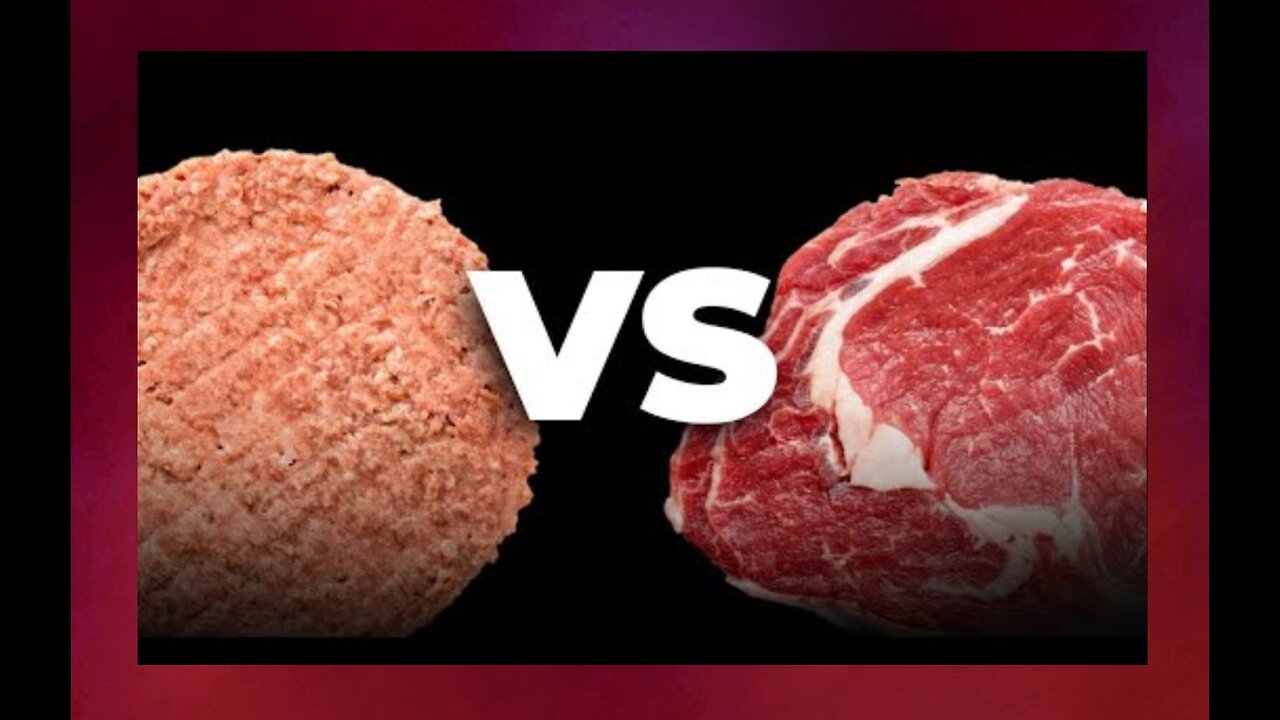Premium Only Content

You'll Never Guess What's Really in Plant-Based Meat | Dr. Eric Berg DC
You'll Never Guess What's Really in Plant-Based Meat! learn the truth about plant-based meats in comparison to real meat and how they affect our health and the environment.
It's no secret that plant-based meats have been marketed as healthier and more environmentally friendly alternatives to real meat. However, these claims are not entirely accurate.
While plant-based meats contain some nutrients, they simply can’t compare to those found in real meat, such as protein, B vitamins, iron, selenium, and zinc. Plant-based meats may try to replicate these nutrients through added chemicals and synthetic ingredients, but they can never match the natural composition of real meat.
The production process of plant-based meats involves using chemicals and additives that may pose health risks. For example, the Impossible Burger contains yeast that creates a synthetic version of the blood protein heme from soy. This ingredient is classified as a color additive and hasn't been thoroughly tested for safety.
Regarding environmental impact, plant-based meats are often touted as a more sustainable option than real meat. However, they require a lot of resources to produce, including water and land. If we look at California almonds, they use ten times more fresh water than cattle.
On the other hand, real meat production uses resources that would otherwise be wasted. For instance, 85 percent of livestock feed comes from non-human edible materials, including corn stalks, beet pulp, and soybean plants.
Cows play a crucial role in maintaining the health of our land. They can graze on terrain unsuitable for growing crops, and their manure is a natural fertilizer for plants. Removing cows from the equation would negatively impact our food production system. One of the main arguments against real meat is the methane emissions from livestock. When looking at the big picture, these emissions are roughly 2.7 percent, which isn’t significant enough to make a real difference.
These emissions are also part of a natural cycle. Plants absorb carbon dioxide from the atmosphere and store it in the soil, which is then consumed by livestock and released as methane. This methane eventually breaks down to become carbon dioxide again, completing the cycle.
Dr. Eric Berg DC Bio:
Dr. Berg, age 59, is a chiropractor who specializes in Healthy Ketosis & Intermittent Fasting. He is the author of the best-selling book "The Healthy Keto Plan" and is the Director of Dr. Berg Nutritionals. He no longer practices but focuses on health education through social media.
-
 DVR
DVR
Bannons War Room
1 year agoWarRoom Live
101M -
 5:42:36
5:42:36
FreshandFit
8 hours agoLive X Censorship For Opposing Immigration?!
79.8K55 -
 1:08:16
1:08:16
Tactical Advisor
3 hours agoNEW Budget Glocks | Vault Room Live Stream 011
25.7K3 -
 16:30
16:30
SNEAKO
10 hours agoNO FRIENDS IN THE INDUSTRY.
49.3K16 -
 6:19
6:19
BlackDiamondGunsandGear
22 hours agoHow Fat Guys can Appendix Carry
23.8K2 -
 6:58
6:58
Gun Owners Of America
1 day ago2024 Was Huge For Gun Rights, Here's Our Top 10 Wins!
25.7K1 -
 15:50
15:50
Degenerate Jay
1 day ago $1.28 earnedJames Bond Is Being Ruined By Amazon? Make Him A Black Gay Woman?
19.7K7 -
 15:18
15:18
DeVory Darkins
1 day ago $12.04 earnedTrump Drops NIGHTMARE Warning on Joe Biden
36K43 -
 36:13
36:13
The Why Files
1 month agoAlien Implants Vol. 1: Devil’s Den UFO Encounter: What Was Found Inside Terry Lovelace?
67.6K39 -
 9:03
9:03
Alabama Arsenal
1 day ago $0.36 earnedAAC HUB 2K | Modern Features, Iconic Classic Looks
9.7K1